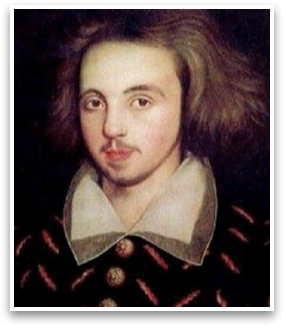
Doctor Faustus Study Guide
If any work captures the intellectual shift that took place during the Renaissance, it is Christopher Marlowe's Dr. Faustus. The Faust myth predates Marlowe, though Marlowe produced the first Faust play of any significance.
The story of Doctor Faustus is among other things a play about the boundaries of knowledge and human limitations. In the Renaissance, a noticeable shift from theocentrism to anthrocentrism took place, and Marlowe's play captures this tension well.
Faustus masters all formal knowledge available to someone in his time - logic, medicine, theology, law - yet he chooses magic as his mistress because he hopes it will enable him to transcend the boundaries of humanity.
In the end, however, Faustus' pride blinds him to the very real possibility of salvation that is his for the asking, if he would only humble himself enough to recognize his humanity.

Themes and Facts
- Marlowe attended Cambridge on a scholarship intended for ministerial students, though he never took holy orders.
- Because of his heterodox views, Marlowe was branded an atheist.
- Despite his contempt for traditional Christian beliefs, the ending of Dr. Faustus is starkly orthodox.
- The influence of St. Augustine's De Doctrinia Christiana is evident, where Augustine emphasized the spiritual nature of biblical interpretation.
Study Questions
- Why and how does Faustus dismiss all disciplines besides magic at the play's beginning?
- Why is magic significant? What does Faustus' embracing of magic represent?
- Faustus and Mephistophilis make a contract that Mephistophilis will do whatsoever Faustus commands in exchange for Faustus' soul. Does Mephistophilis live up to his end of the contract?
- What would be necessary for Faustus to repent? Why is he unable to do so?
- Is it significant that a couple of the minor characters (1 Scholar and 2 Scholar) are able to see the means of salvation while Marlowe cannot?
- How does Mephistophilis seem to talk Faustus out of selling his soul? Where do you see a sense of regret in Mephistophilis himself?
Dr. Faustus is the story of a man whose pride and desire for self-accomplishment blind him to the possibility of salvation, a salvation that is his for the asking if he would but humble himself enough to ask.